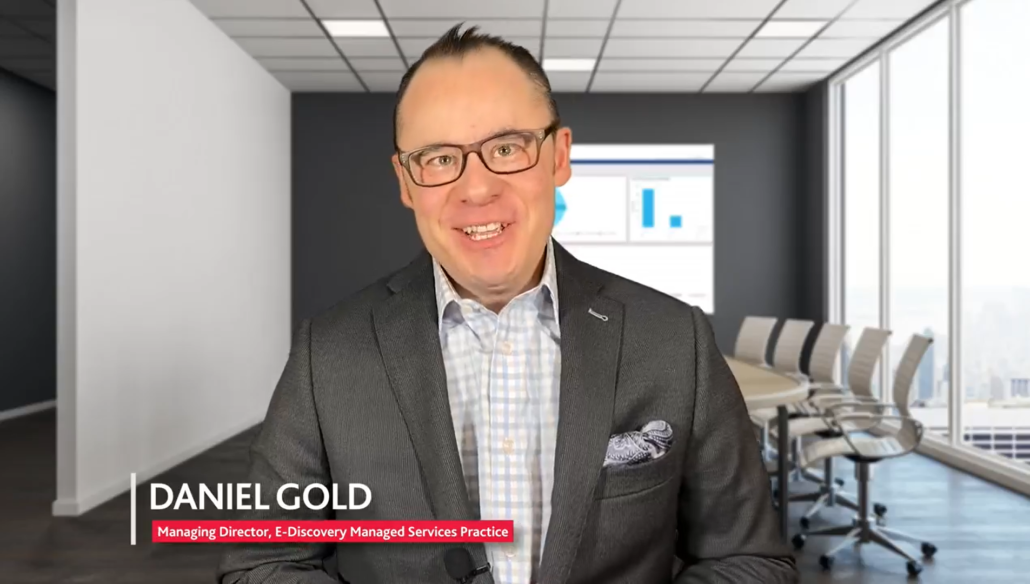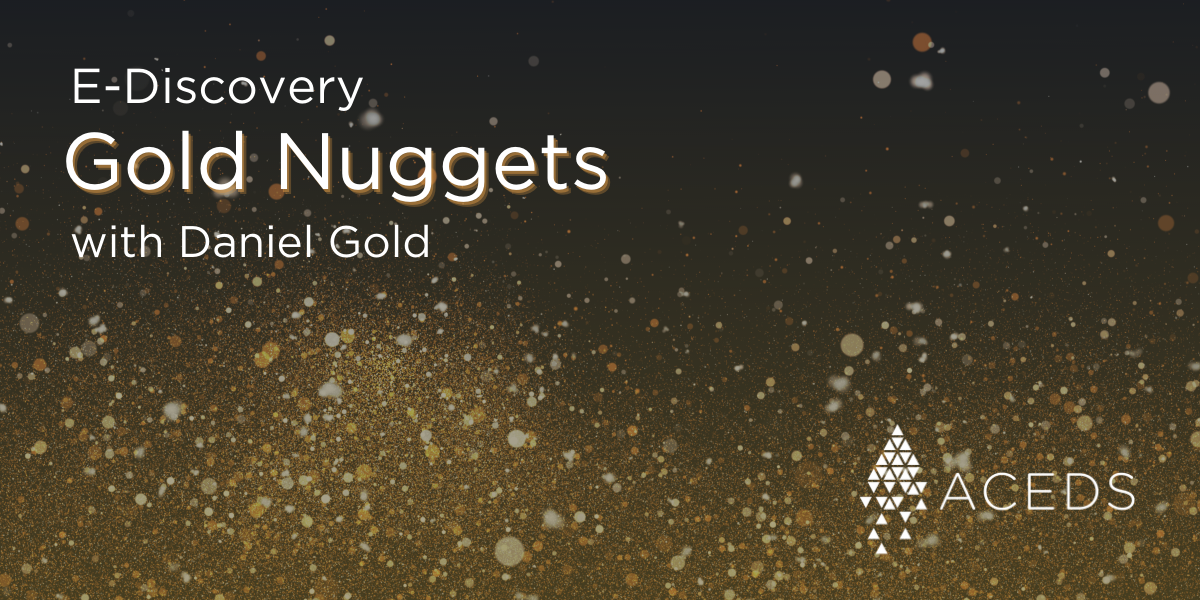Welcome to another installment of “E-Discovery Gold Nuggets”, where ACEDS Kansas City Chapter Leader Daniel Gold’s LinkedIn video series is explored on the ACEDS blog. Gold, who is also Managing Director of E-Discovery Managed Services for ACEDS partner BDO, shares tips for legal professionals on a wide range of topics in e-discovery and legal technology.
Check out past nuggets of wisdom on the ACEDS blog and subscribe for weekly updates. Today’s edition shares two episodes, with a focus on attorney collaboration and metadata:
Collaboration
“Today, I want to chat about collaboration between lawyers, and why it’s not what you think. You know, most lawyers I’ve worked with over time feel as if ‘collaborating’ with opposing counsel denotes some sort of weakness, and that we must keep all our cards close. Less is better, right? Now look, I may not be a neuroscientist, but I can tell you there’s a wonderful body of science dedicated to how cooperation generates more productivity and greater efficiency. And this applies to the practice of law
In fact, it was Sedona Conference that once wrote that cooperation actually doesn’t conflict with the advancements of a client’s interest. It enhances it. Only when lawyers confuse advocacy with adversarial conduct are these twin duties in conflict. As it turns out, being more well-versed in e-discovery technology helps reduce the overall costs, as well as making Rules 16 and 26 of the Federal Rules of Civil Procedure conferences vastly more substantive.
So, here’s the question: if cooperative is not the antithesis of being a zealous advocate, what are you doing to secure a just, speedy, and inexpensive determination of every action and proceeding for Rule 1 of the Federal Rules of Civil Procedure? I’d love to connect with you to hear more about what you’re doing and how we can help clients just like you.
Until next time, I’m Daniel Gold and this was an E-Discovery Gold Nugget.”
Watch episode #4 of “E-Discovery Gold Nuggets”

Metadata
“Today, I want to chat about metadata. Metadata is really, well, data about data. This could be as simple as tracked changes in a Word Document or the time and data on a PC’s clock. Depending upon the matter, metadata can tell a wonderful story that fills in a lot of gaps and provides fantastic context. As we know from my previous videos, an attorney is ethically bound by Rules of Professional Conduct to understand the benefits and risks of how metadata may potentially impact the case,
Federal Rule 34(b)(1)(c) of the Federal Rules of Civil Procedure provides that we specify the form or forms in which ESI is to be produced, which can include specific types of metadata. The discussion around the form or forms of productions should come out in either a Rule 16 or 26 conference. Not having the right conversation can absolutely lead to Rule 37 sanctions, even under the revised 2015 rules.
So, here’s the question: what are you doing to take proactive steps in ensuring that you know the various types of metadata that are being created and what is your plan to ensure that it’s being preserved appropriately?
I’d love to connect with you to hear more about the challenges you’re facing and how Athenagy may be able to help you and your team. Until next time, I’m Daniel Gold and this was another E-Discovery Gold Nugget.”
Watch episode #5 of “E-Discovery Gold Nuggets”
Learn more about ACEDS e-discovery training and certification, and subscribe to the ACEDS blog for weekly updates.

